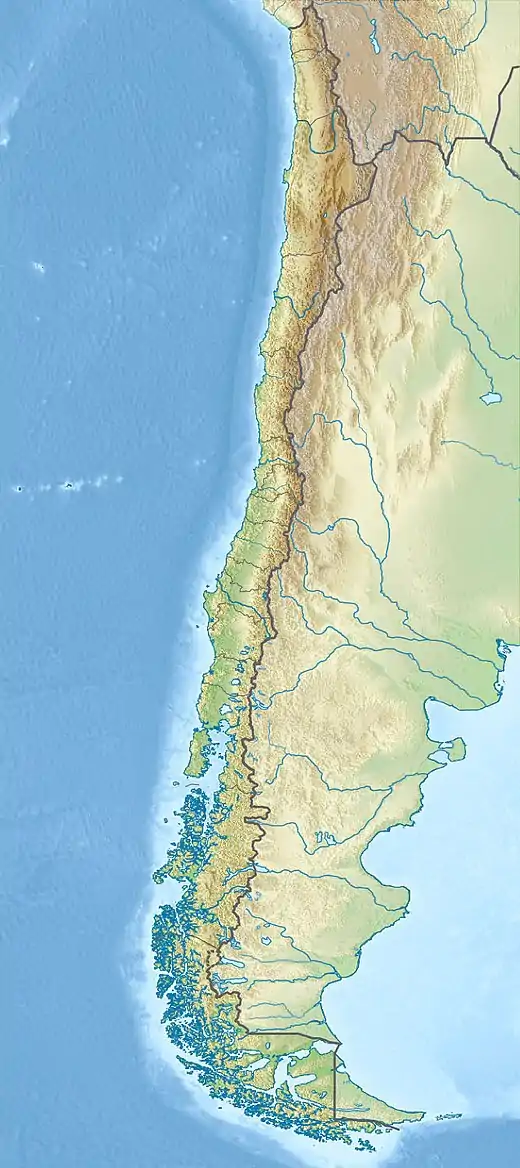Traiguén Formation
Traiguén Formation (Spanish: Formación Traiguén) is a volcano-sedimentary formation of Miocene age, located in the archipelagoes of Aysén Region of western Patagonia.
| Traiguén Formation Stratigraphic range: Early Miocene | |
|---|---|
| Type | Geological formation |
| Lithology | |
| Primary | Tuff, basaltic pillow lava, breccia, sandstone, shale |
| Location | |
| Coordinates | 45.2°S 74.5°W |
| Region | Aysén Region |
| Country | |
| Type section | |
| Named for | Traiguén Island |
| Named by | Espinoza & Fuenzalida |
| Year defined | 1971 |
 Traiguén Formation (Chile) | |
Geology
The volcanic and sedimentary rocks were deposited in a marine environment. Neither the base nor the top of the formation is known. Copious dykes of basic composition and aphanitic texture intrude the formation.
At some locations Miocene plutons of the North Patagonian Batholith intrude the Traiguén Formation. The intruded plutons are of varied composition including gabbro and granodiorite.[1]
See also
- Geology of Aysén Region
- Stratigraphy of Chile
References
- Encinas, Alfonso; Folguera, Andrés; Oliveros, Verónica; De Girolamo Del Mauro, Lizet; Tapia, Francisca; Riffo, Ricardo; Hervé, Francisco; Finger, Kenneth L.; Valencia, Víctor A.; Gianni, Guido; Álvarez, Orlando (2016). "Late Oligocene–early Miocene submarine volcanism and deep-marine sedimentation in an extensional basin of southern Chile: Implications for the tectonic development of the North Patagonian Andes". Geological Society of America Bulletin. 128 (5–6): 807–823. doi:10.1130/b31303.1.
This article is issued from Wikipedia. The text is licensed under Creative Commons - Attribution - Sharealike. Additional terms may apply for the media files.